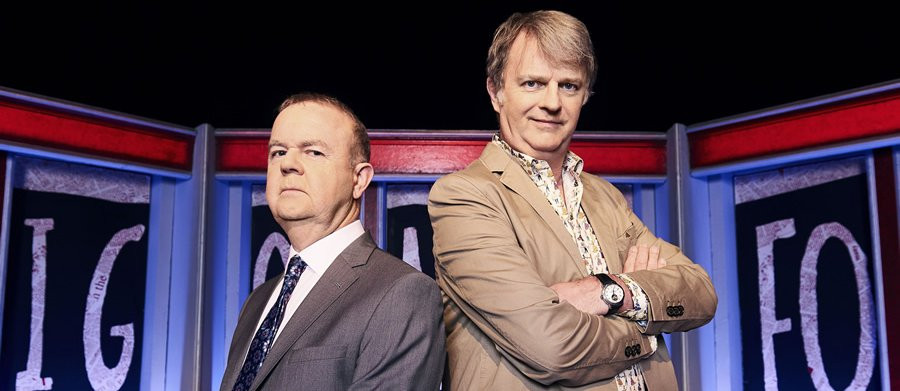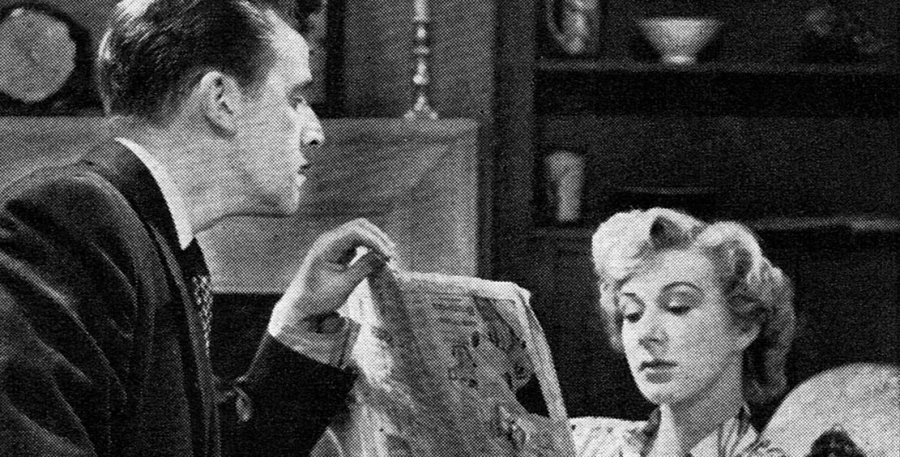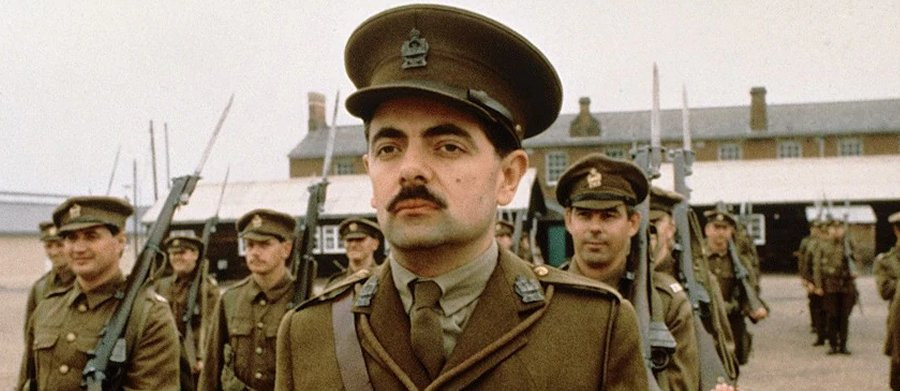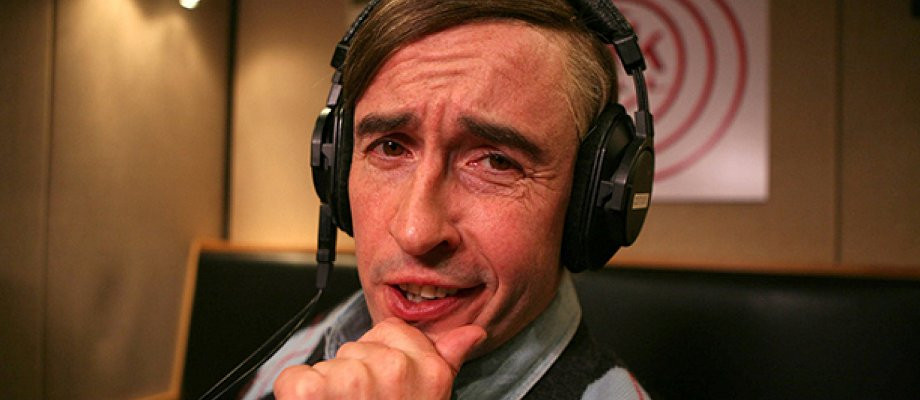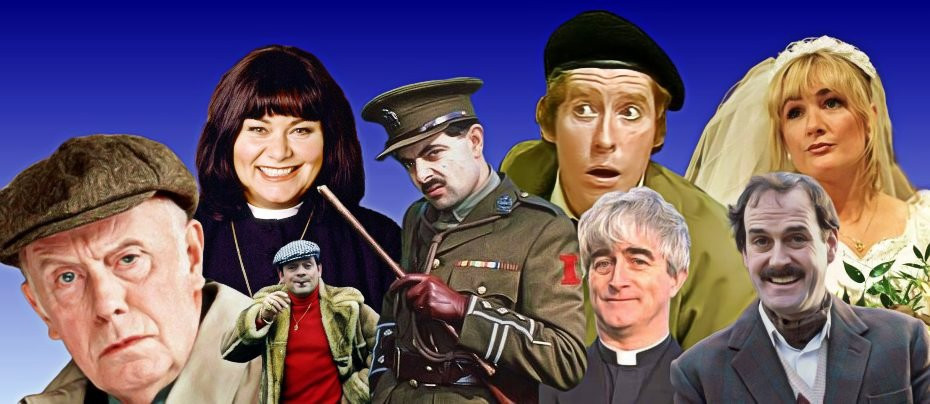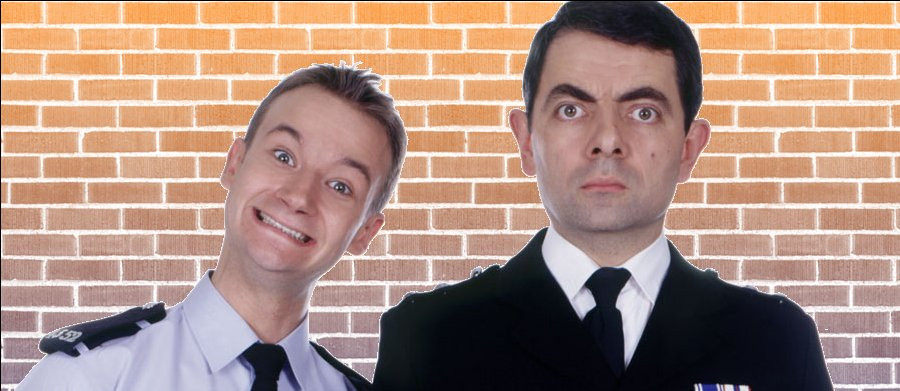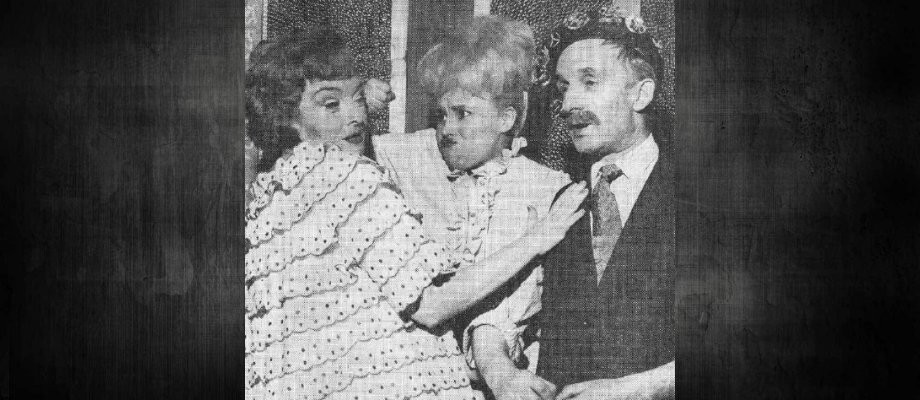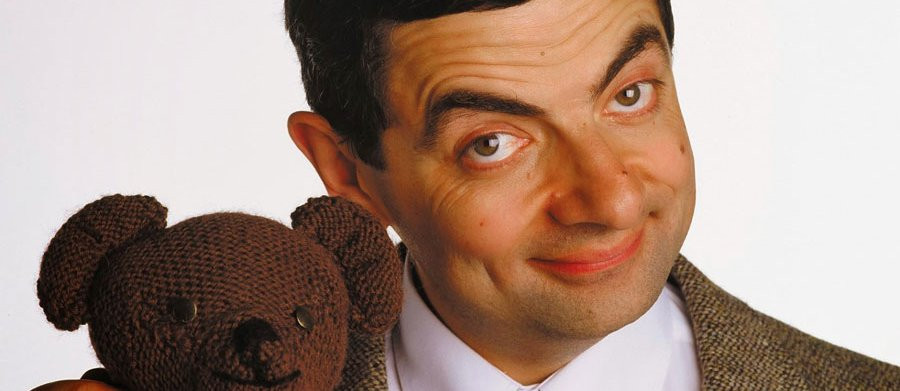
Mr. Bean
1990 - United KingdomReview: Brian Slade
In April 1979, London Weekend Television aired a one-off programme called Canned Laughter, a 30 minute comedy starring a largely unknown comic just a few years out of university. The focus of the programme was a largely physical comedy character called Robert Box, who would give us the first indication of a worldwide phenomenon that would take television comedy by storm eleven years later. That performer was Rowan Atkinson, and Box was the first hint of what would become Mr Bean.
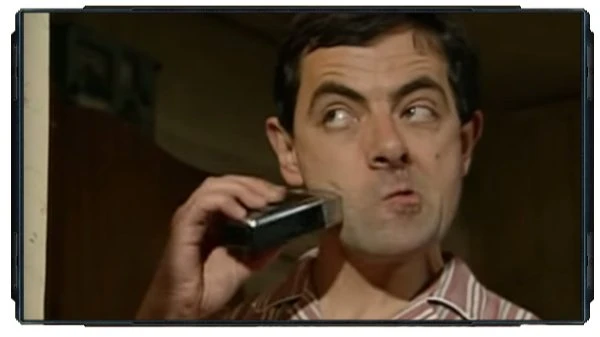
There’s no question that the essence of Bean was on display in the LWT half hour offering. Although Box was more vocal than Bean, all the elements were there. We see him using a battery razor on every inch of his face, including his tongue, before realising he is running late. After dropping his coffee mug, he improvises by pouring all the ingredients for a coffee directly into his mouth and jumping around to mix it, before charging down the street in an exaggerated running style. The date that follows show classic signs of Bean as Box displays nervous incompetence and awkward social skills in his attempts to impress his lady companion. Aside from the verbal elements, it’s Bean all over.
The arrival of Mr Bean would have to wait however, as Atkinson wowed the nation with his involvement in the ground-breaking Not the Nine O’Clock News series and his subsequent various incarnations of Blackadder throughout the 1980s. It was not until New Year’s Day 1990 that the first episode of Mr Bean arrived on commercial television.
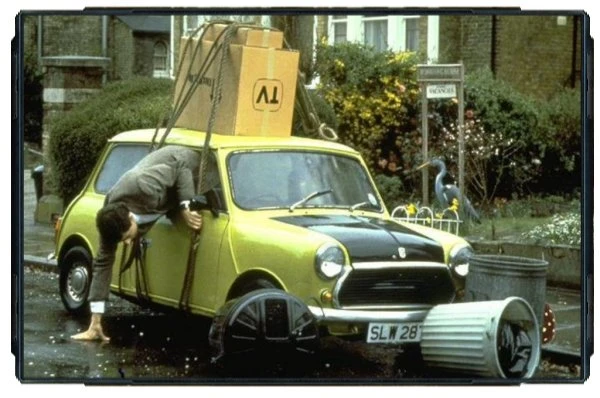
The opening collection of segments was written by Rowan Atkinson’s regular collaborators, Ben Elton and Richard Curtis, although it would be Elton’s only writing credit during the run of Mr Bean as Robin Driscoll picked up the baton. Bean himself was an uncomfortable, largely non-communicative character out of place with society. There are consistencies that ran all the way through his fourteen collections of adventures. His dress was always a thin red tie, tight brown trousers and a brown jacket, and he drove a yellow mini with a black bonnet, torturing a Reliant Robin 3-wheeler during his travels. Bean’s awkwardness in society is evidenced by the fact that his most loyal friend appears to be his teddy bear.
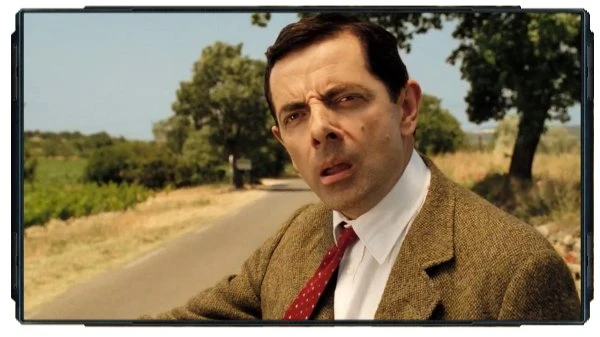
Quite what the intellectual level of Bean is we are never fully sure. We must assume he has intelligence but bemused by society as in the very first segment he is in an examination room. When he realises that the questions in the exam are not the subject he has studied, he conjures up various ways to try and cheat off the person sitting next to him, before despairing head first into his desk shouting for his ‘mummy.’ It’s only upon the examiner telling people what to do with their answers shortly before the end of the exam that Bean realises that his subject of expertise was on the paper he mistakenly left in the envelope.
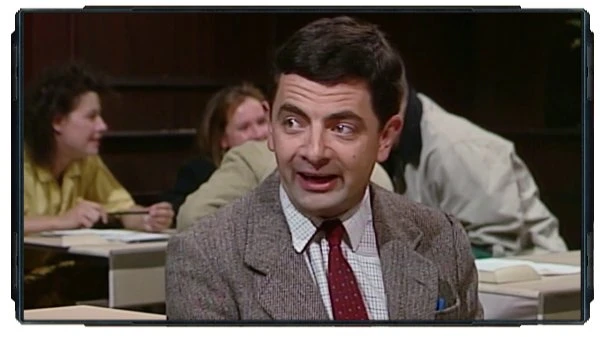
The two subsequent pieces show Bean trying to change into his trunks on a beach without being seen by a nearby gentleman in a deckchair, who turns out to be blind, and then finally trying to avoid drifting off to sleep during a church service, much to the disgust of the other gent on his pew, played by Richard Briers.
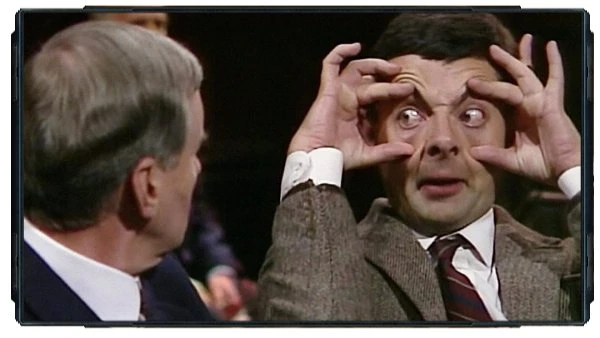
The success of that opening episode set an absurdly high standard in physical comedy for Atkinson. His rubbery face and indeed body allow all sorts of mannerisms to delight the show’s audience, and in this opening outing Bean had the full sympathy of the viewer. His failures are simply to do with his awkwardness with ordinary situations, and at this point we get to see little of his character.
Mr Bean was never a series as such. All subsequent episodes tended to appear at irregular one-off intervals across nearly six years, often with many months between shows. How Bean sustained his lifestyle is never explored. In the second episode, he is proudly wafting his new credit card around in a large department store, trying out a multitude of household items in ever more absurd circumstances – bringing a potato out of his jacket to test peelers and a fish from his inside pocket to measure prospective frying pans. In the same episode, Bean is trying his best to be immaculately turned out for a royal premier, implying a job at the theatre, albeit he ends up head-butting the royal guest! But as with most visual comedy, analysing and cross-examining is pointless. Bean is just a very funny character whose childlike approach to the world does nothing but entertain.
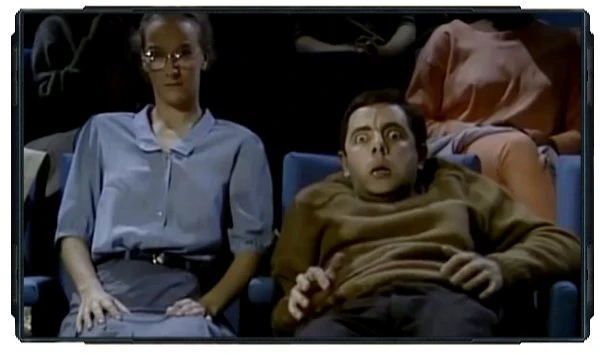
In later episodes, we are reminded of the earlier Robert Box from Canned Laughter as Bean is uncomfortable and somewhat inconsiderate while attempting to impress a date, and our sympathies ebb and flow as he treats himself to a birthday dinner at a top restaurant, entirely in isolation and with his own birthday card to himself. However poorly his romantic efforts turn out, Irma Gobb (Matilda Ziegler) appears on a number of occasions as his only significant other beyond teddy.
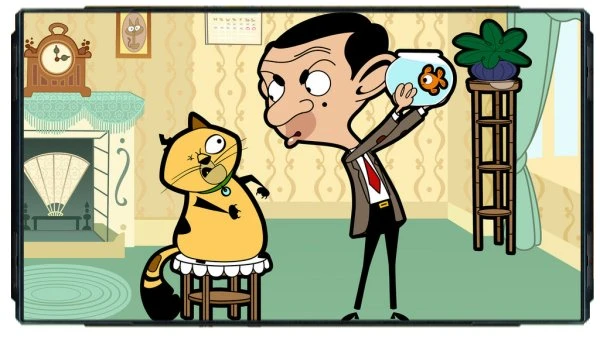
Although Mr Bean actually ended in 1995, the character has endured in multiple formats. Several movies, live performances, a hugely successful cartoon series along with worldwide syndication has ensured Atkinson’s creation has yet to lose his appeal, finding new audiences with his slapstick humour. His minimal conversation has made Bean an eminently exportable property, but there’s no doubting that the episodes made for ITV in the early 1990s were Bean at his best and helped cement Rowan Atkinson’s place in the hearts of the viewing public.
Related links:
Seen this show? How do you rate it?
Seen this show? How do you rate it?
Published on May 27th, 2020. Written by Brian Slade for Television Heaven.


